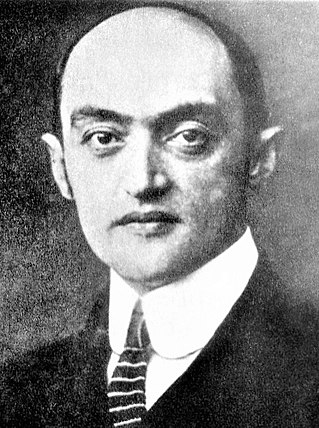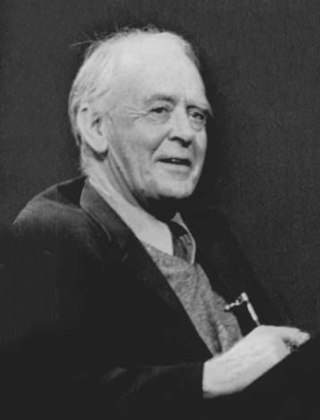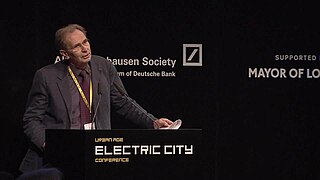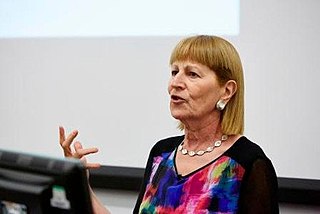Related Research Articles

Joseph Alois Schumpeter was an Austrian political economist. He served briefly as Finance Minister of Austria in 1919. In 1932, he emigrated to the United States to become a professor at Harvard University, where he remained until the end of his career, and in 1939 obtained American citizenship.
A nation is a large type of social organization where a collective identity, a national identity, has emerged from a combination of shared features across a given population, such as language, history, ethnicity, culture, territory or society. Some nations are constructed around ethnicity while others are bound by political constitutions.

Sir John Richard Hicks was a British economist. He is considered one of the most important and influential economists of the twentieth century. The most familiar of his many contributions in the field of economics were his statement of consumer demand theory in microeconomics, and the IS–LM model (1937), which summarised a Keynesian view of macroeconomics. His book Value and Capital (1939) significantly extended general-equilibrium and value theory. The compensated demand function is named the Hicksian demand function in memory of him.

Sir Nigel John Thrift is a British academic and geographer. In 2018 he was appointed as Chair of the Committee on Radioactive Waste Management, a committee that gives independent scientific and technical advice on radioactive waste to the UK government and the devolved administrations. He is a visiting professor at the University of Oxford and Tsinghua University and an emeritus professor at the University of Bristol. In 2016 and 2017 he was the executive director of the Schwarzman Scholars, an international leadership program at Tsinghua University in Beijing. He was the Vice-Chancellor of the University of Warwick from 2006 to 2016. He is a leading academic in the fields of human geography and the social sciences.
Thomas Burton Bottomore was a British Marxist sociologist.
Pat Devine is a radical socialist economist concerned mainly with industrial economics and comparative economic systems.

Craig Jackson Calhoun is an American sociologist who currently serves as the University Professor of Social Sciences at Arizona State University. He is a strong advocate for applying social science to address issues of public concerns. Calhoun served as the Director of the London School of Economics and Political Science (LSE) from September 2012 until September 2016 and continues to hold the title of Centennial Professor of Sociology at LSE.

John Richard Urry was a British sociologist who served as a professor at Lancaster University. He is noted for work in the fields of the sociology of tourism and mobility.

Laurent Thévenot is a French sociologist Professor at the Ecole des Hautes Etudes en Sciences Sociales (Paris).
Scott Lash is a professor of sociology and cultural studies at Goldsmiths, University of London. Lash obtained a BSc in Psychology from the University of Michigan, an MA in Sociology from Northwestern University, and a PhD from the London School of Economics (1980). Lash began his teaching career as a lecturer at Lancaster University and became a professor in 1993. He moved to London in 1998 to take up his present post as Director for the Centre for Cultural Studies and Professor of Sociology at Goldsmiths College.
Victor G. Nee is an American sociologist and professor at Cornell University, known for his work in economic sociology, inequality and immigration. He published a book with Richard Alba entitled Remaking the American Mainstream proposing a neo-assimilation theory to explain the assimilation of post-1965 immigrant minorities and the second generation. In 2012, he published Capitalism from Below co-authored with Sonja Opper examining the rise of economic institutions of capitalism in China. Nee is the Frank and Rosa Rhodes Professor, and Director of the Center for the Study of Economy and Society at Cornell University. Nee received the John Simon Guggenheim Fellowship in 2007, and has been a visiting fellow at the Russell Sage Foundation in New York ( 1994–1995), and the Center for Advanced Study in the Behavioral Sciences (1996-1997). He was awarded an honorary doctorate in Economics by Lund University in Sweden in 2013.

Nikolas Rose is a British sociologist and social theorist. He is Distinguished Honorary Professor at the Research School of Social Sciences, in the College of Arts and Social Sciences at the Australian National University and Honorary Professor at the Institute of Advanced Studies at University College London. From January 2012 to until his retirement in April 2021 he was Professor of Sociology in the Department of Global Health and Social Medicine at King's College London, having joined King's to found this new Department. He was the Co-Founder and Co-Director of King's ESRC Centre for Society and Mental Health. Before moving to King's College London, he was the James Martin White Professor of Sociology at the London School of Economics, director and founder of LSE's BIOS Centre for the Study of Bioscience, Biomedicine, Biotechnology and Society from 2002 to 2011, and Head of the LSE Department of Sociology (2002–2006). He was previously Professor of Sociology at Goldsmiths, University of London, where he was Head of the Department of Sociology, Pro-Warden for Research and Head of the Goldsmiths Centre for Urban and Community Research and Director of a major evaluation of urban regeneration in South East London. He is a Fellow of the British Academy, the Royal Society of Arts and the Academy of Social Sciences, and a Fellow of the Royal Danish Academy of Science and Letters. He holds honorary doctorates from the University of Sussex, England, and Aarhus University, Denmark.
The following events related to sociology occurred in the 1990s.
Colin Hay is Professor of Political Sciences at Sciences Po, Paris and Affiliate Professor of Political Analysis at the University of Sheffield, joint editor-in-chief of the journal Comparative European Politics. and Managing Editor of the journal New Political Economy.

Judy Wajcman, is the Anthony Giddens Professor of Sociology at the London School of Economics and Political Science. She is the Principal Investigator of the Women in Data Science and AI project at The Alan Turing Institute. She is also a visiting professor at the Oxford Internet Institute. Her scholarly interests encompass the sociology of work, science and technology studies, gender theory, and organizational analysis. Her work has been translated into French, German, Greek, Italian, Korean, Japanese, Portuguese, Russian, Chinese and Spanish. Prior to joining the LSE in 2009, she was a Professor of Sociology in the Research School of Social Sciences at the Australian National University. She was the first woman to be appointed the Norman Laski Research Fellow (1978–80) at St. John's College, Cambridge. In 1997 she was elected Fellow of the Academy of the Social Sciences in Australia.
Ian Steedman was for many years a professor of economics at the University of Manchester before moving down the road to Manchester Metropolitan University. He retired from there at the end of 2006, but was appointed as an emeritus professor.
Patrik Aspers is a Swedish sociologist, who is chair of Sociology at the Unviversity of St. Gallen, Switzerland. He has worked in several countries. His research has mostly been on sociological theory and economic sociology, often drawing on phenomenology. Markets are the central topic of his research, and empirically he has mainly studied the fashion industry. He has developed notions like "aesthetic markets", "status markets" and "standard markets".

John Peter Scott is an English sociologist working on issues of economic and political sociology, social stratification, the history of sociology, and social network analysis. He is currently working independently, and has previously worked at the Universities of Strathclyde, Leicester, Essex, and Plymouth. He is a Fellow of the British Academy, a Fellow of the Royal Society of Arts, and a Fellow of the Academy of Social Sciences. He has been a member of the British Sociological Association since 1970. In 2015 he became Chair of Section S4 of the British Academy. In 2016 he was awarded an Honorary Doctorate of Essex University.

Colin John Crouch, is an English sociologist and political scientist. He coined the post-democracy concept in 2000 in his book Coping with Post-Democracy. Colin Crouch is currently Emeritus Professor at the University of Warwick and an External Scientific Member of the Max Planck Institute for the Study of Societies.

Jens Beckert is a German sociologist with a strong interest in economic sociology. The author of books on inherited wealth and the social foundations of economic efficiency and imagined futures in the economy, he focuses on the role of the economy in society – especially based on studies of markets – as well as organizational sociology, the sociology of inheritance, and sociological theory. He is director at the Max Planck Institute for the Study of Societies (MPIfG) in Cologne, Germany, and a member of the Berlin-Brandenburg Academy of Sciences and Humanities.
References
- 1 2 "Professor Nigel Dodd". London School of Economics. Retrieved 16 October 2022.
- ↑ "Editorial announcement". British Journal of Sociology. 65 (2): 199. 18 June 2014. doi:10.1111/1468-4446.12081.